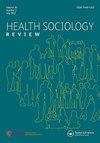移民保健权利知识的决定因素
IF 2.5
2区 医学
Q2 HEALTH POLICY & SERVICES
引用次数: 9
摘要
摘要尽管越来越多的研究强调移民对其医疗保健权利的了解对他们的医疗保健使用至关重要,但几乎没有一项研究考察移民获得这些知识的条件。本研究通过研究移民了解其医疗保健权利的主要决定因素:自我利益和必要性、人力资本和社会资本,为文献做出了贡献。我使用了通过移民福利国家态度项目(MIFARE)收集的独特数据,在该项目中,我们调查了丹麦、荷兰和德国的10个不同移民群体与福利国家的关系,包括医疗保健。我使用多项逻辑回归分析对6864名移民的总样本进行了分析,发现移民对其医疗保健权利的了解主要取决于他们的教育和语言技能。这两个因素都使移民能够掌握与健康相关的信息,并了解他们的医疗保健权利。我还观察到了网络效应,因为家庭成员的医疗保健经历有助于移民的医疗保健知识。然而,与同种族社区的社会关系并不能解释为什么一些移民比其他人更了解自己的医疗保健权利。最后,我发现移民群体之间存在很大差异,即使在控制了所有相关因素后,这种差异仍然存在。本文章由计算机程序翻译,如有差异,请以英文原文为准。
Determinants of migrants’ knowledge about their healthcare rights
ABSTRACT Although an increasing number of studies emphasise migrants’ knowledge about their healthcare rights as crucial for their healthcare usage, almost none examine the conditions under which migrants acquire this knowledge. This study contributes to the literature by studying the main determinants of migrants’ knowledge about their healthcare rights: Self-interest and necessity, human capital, and social capital. I use unique data collected through the project Migrants’ Welfare State Attitudes (MIFARE), where we surveyed 10 different migrant groups within Denmark, the Netherlands, and Germany on their relation to the welfare state, including healthcare. Analysing a total sample of 6,864 migrants using multinomial logistic regression analyses I find that migrants’ knowledge about their healthcare rights depends mainly on their education and language skills. Both factors enable migrants to grasp health-related information and to become informed about their healthcare rights. I also observe a network effect since healthcare experiences of family members contribute to migrants’ healthcare knowledge. Social ties to the co-ethnic community, however, do not explain why some migrants know more about their healthcare rights than others. Lastly, I find large differences between migrant groups, which remain even after controlling for all relevant factors.
求助全文
通过发布文献求助,成功后即可免费获取论文全文。
去求助
来源期刊

Health Sociology Review
Multiple-
CiteScore
7.50
自引率
0.00%
发文量
14
期刊介绍:
An international, scholarly peer-reviewed journal, Health Sociology Review explores the contribution of sociology and sociological research methods to understanding health and illness; to health policy, promotion and practice; and to equity, social justice, social policy and social work. Health Sociology Review is published in association with The Australian Sociological Association (TASA) under the editorship of Eileen Willis. Health Sociology Review publishes original theoretical and research articles, literature reviews, special issues, symposia, commentaries and book reviews.
 求助内容:
求助内容: 应助结果提醒方式:
应助结果提醒方式:


